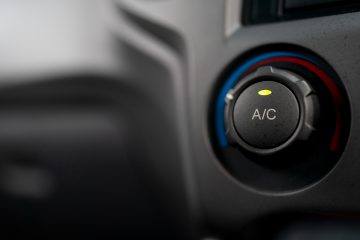The UK Government is considering the introduction of a ‘scrappage scheme’ that will see incentives for consumers buying battery-electric vehicles (BEVs), according to some press speculation. But does the aftermarket have anything to fear from such a move?
As the coronavirus (COVID-19) outbreak plays havoc with the European automotive industry, through dealer closures and plant shutdowns, countries around the continent are working to support what is an important market in their economies. With Germany announcing a package of measures for its industry, and France and the Netherlands doing likewise, the UK is expected to follow suit.
The UK newspaper the Daily Telegraph reports that an incentive scheme is planned that will see drivers given a £6,000 (€6,736) grant towards a BEV if they trade in their petrol or diesel model. By offering this, the UK Government hopes to entice manufacturers of BEVs to the country, and aid automotive production. It is also hoped that such a move will improve sales in the country, which stalled in April and May as dealerships closed their showrooms.
Likely impact
However, according to statistics from the Society of Motor Manufacturers and Traders (SMMT), the UK sold 37,850 BEVs in 2019, representing a 1.6% market share. While the current year-to-date figures show 22,054 BEVs sold, representing 4.3% of the market, these figures have been deeply impacted by COVID-19. It is therefore questionable as to whether incentives on BEVs will provide the boost to sales the industry needs after two months of closures.
The Telegraph report does not make it clear whether hybrid or plug-in hybrid (PHEV) models will be included in the incentive scheme. It comes in the wake of the UK business secretary announcing five ‘round-tables’, one of which will focus on how to capture economic growth opportunities from the shift to net-zero carbon emissions.
Green plans
It is most likely that the Government is considering such a scrappage scheme to help drive BEV uptake as it looks to ban petrol, diesel and hybrid models by 2035.
A 1.6% market share in 2019 was a record figure, with sales of BEVs increasing 144% year-on-year. However, putting these figures into context, nearly 1.5 million petrol models and almost 600,000 diesel vehicles left showrooms last year, while sales of traditional hybrids amounted to around 98,000. While the UK is doing more to improve its charging infrastructure, uptake in electric-vehicle technology is slow, and unless something is done to inspire buyers, the industry could be hit by a dramatic drop in the total number of car sales in 2035 and beyond.
Therefore, a BEV-related scrappage deal may work to entice more people, while ridding UK roads of polluting petrol and diesel models, helping reduce air pollution figures and increasing consumer confidence in the technology.
Price barrier
The £6,000 grant towards a BEV may not do enough however to make models affordable for the masses. Nissan currently lists the Leaf at £26,845, while the base-specification Micra retails from £14,215.
Therefore, a scheme based solely on BEV sales may do more harm to the country’s automotive industry than good, as those who cannot afford the list price of a BEV will keep their older cars and sales will continue to suffer. Autovista Group is forecasting a 30% drop in sales this year compared to 2019.
Aftermarket opposition
While the IAAF recognises that it is imperative to get the economy back in gear, it believes there are other ways to do so and a scrappage scheme is not the only way.
The federation is arguing that if introduced, it will have a significantly negative effect on public mobility and the automotive aftermarket long term, especially as most of the vehicles eligible for the scheme will still be very much roadworthy.
This prediction is based on previous experience as in 2009, a scrappage scheme removed 400,000 serviceable vehicles from the aftermarket, with more than 90 percent of vehicles sold under the scheme originating from non-UK factories. In 2020, the situation remains largely the same with 88 percent of cars sold in the UK during 2019 being imported.
As the UK aftermarket also employs approximately 347,000 people as opposed to 186,000 in vehicle manufacturing, employment in the independent automotive aftermarket would be damaged by a scrappage scheme and jeopardise thousands of repair businesses. This would also be detrimental to motorists and customer choice.
With a newer vehicle parc, there is also a risk that VMs could potentially gain a monopoly on access to vehicle technical condition data, raising the question of data access.
With the forthcoming block exemption legislation renewal due in 2023, IAAF is continuing to argue that the aftermarket should have the same access rights as the franchised sector, providing the workshop is equipped with appropriate tools and equipment, thus creating a level playing field for all.
Wendy Williamson, IAAF chief executive, said: “Motorists are currently under great pressure, and they should not be penalised for keeping hold of vehicles that are in good working condition and can continue to be serviced, repaired and maintained long into the future.
“Not only is this unfair to consumers, but it is putting the aftermarket at great risk, as it will result in a direct decrease in the number of vehicles entering independent garages.”



